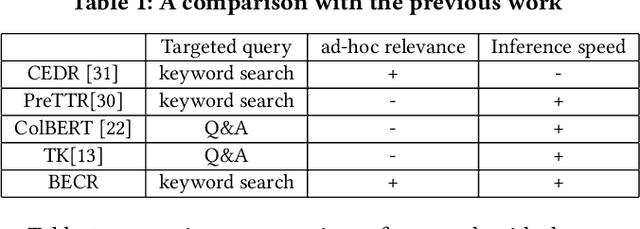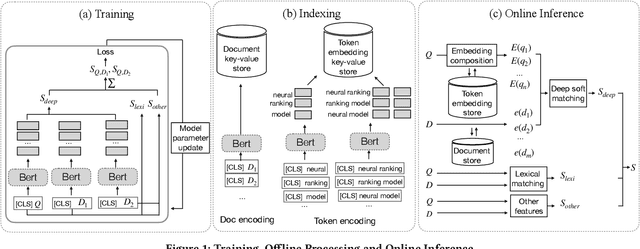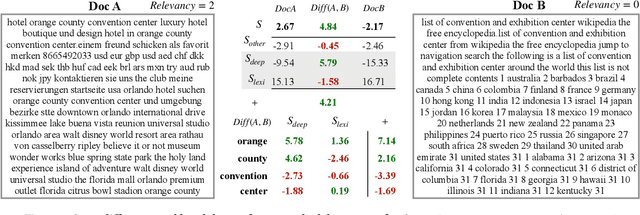Composite Re-Ranking for Efficient Document Search with BERT
Paper and Code
Mar 12, 2021



Although considerable efforts have been devoted to transformer-based ranking models for document search, the relevance-efficiency tradeoff remains a critical problem for ad-hoc ranking. To overcome this challenge, this paper presents BECR (BERT-based Composite Re-Ranking), a composite re-ranking scheme that combines deep contextual token interactions and traditional lexical term-matching features. In particular, BECR exploits a token encoding mechanism to decompose the query representations into pre-computable uni-grams and skip-n-grams. By applying token encoding on top of a dual-encoder architecture, BECR separates the attentions between a query and a document while capturing the contextual semantics of a query. In contrast to previous approaches, this framework does not perform expensive BERT computations during online inference. Thus, it is significantly faster, yet still able to achieve high competitiveness in ad-hoc ranking relevance. Finally, an in-depth comparison between BECR and other start-of-the-art neural ranking baselines is described using the TREC datasets, thereby further demonstrating the enhanced relevance and efficiency of BECR.
 Add to Chrome
Add to Chrome Add to Firefox
Add to Firefox Add to Edge
Add to Edge